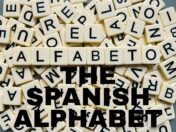46 Spanish Tongue Twisters To Perfect Your Pronunciation

Get our free email course, Shortcut to Conversational.
Have conversations faster, understand people when they speak fast, and other tested tips to learn faster.
More infoPracticing Spanish tongue twisters is an extremely useful, yet often overlooked way to perfect your Spanish pronunciation.
In fact, practicing tongue twisters is something that most native Spanish speakers will have memories of from their time in school.
As a Spanish student, tongue twisters as a great way to perfect your pronunciation, and untangle some of the most difficult Spanish sounds that tend to give students some trouble (we’re looking at you, double-r sound).
To make the most of this post, we recommend that you:
- Listen to the audio of the sentence
- Read the sentence slowly at first, making sure you have the general pronunciation nailed down
- Practice until you think you can say it fast
- Record yourself and listen back
- Laugh at yourself, because there’s no doubt that you’ll sound funny at times.
We are going to categorize these tongue twisters, based on the different sounds that they test.
Although we included the English translation, this is purely for curiosity sake, since most tongue twisters don’t translate well (some even include words that don’t even exist).
So our advice is to focus on the Spanish.
Let’s see some of them:
Practice the pronunciation of RR – TR
1) Treinta y tres personas de Tarragona entraron en la ciudad, todos los treinta y tres trotando
(Thirty-three people from Tarragona entered the city, all thirty-three jogging)
2) R con R cigarro, R con R barril, rápido corren los carros por la vía del ferrocarril
(R with R cigar, R with R barrel, the cars run fast by the train rail)
3) Tres tristes tigres comen trigo en un trigal
(Three sad tigers eat wheat in a wheat field)
4) Tres tristes tigres, comen trigo en tres tristes platos en un triste trigal
(Three sad tigers eat wheat in three sad dishes at a sad wheat field)
5) El burrito barrigón ayer se dio un resbalón, por andar detrás de un carro, cayó dentro del barro
(The pot-bellied little donkey fell yesterday, he was walking behind a car, so he fell into the mud)
6) El perro de San Roque no tiene rabo, porque el carretero Ramón Ramiro Ramírez con la rara rueda de su carro se lo ha arrancado
(The dog of San Roque doesn’t have a tail, because Ramón Ramiro Ramírez with the rare wheel of his car has ripped it off)
Practice the pronunciation of DR, BR
7) Cubre la cebra su cuerpo, saca su lengua la cobra, come la hierba la cabra; aunque la cabra cubre a la cobra y la cebra cubre a la cabra, cobra, cabra y cebra comen en la sombra
(The zebra covers its body, it takes its tongue the cobra, the goat eats the grass, although the goat covers the cobra and the zebra covers the goat, cobra, goat and zebra eat in the shade)
8) Tres bromistas cabritas bromeaban en noviembre con un cabrero y en diciembre con un obrero
(Three joking goats joked in November with a goatherd and in December with a worker)
9) De los libros de la librería tomé el libro liberador, aunque no me libro de la librería, del libro me quiero librar yo
(From the books of the bookstore I took the liberating book, although I didn’t get rid from the bookstore, I wanted to free myself from the book)
10) Un dragón madrugador se levanta de madrugada. El dragón que es tragón, tragó carbón y quedó panzón
(An early riser dragon rises early in the morning. The dragon that is sweet, swallowed coal and was potbellied)
11) A un perro que ladra mucho le llamamos ladrón
(A dog that barks a lot we call him a thief)
Practice the pronunciation of BL, CL, GL
12) Pablito clavó un clavito en la calva de un calvito. ¿Qué clase de clavito clavó Pablito en la calva del calvito?
(Pablito stuck a nail into the bald head of a bald man. What kind of nail nailed Pablito in the bald head of a bold man?)
13) Que un cable hable y tiemble es deleznable e inimaginable
(That a cable can talk and trembles is despicable and unimaginable)
14) Don globo glosaba con el globo glotón, glosando, glosando, globalizando los dos
(Don balloon glossed with the gluttonous globe, glossing, glossing, globalizing the two)
15) Las tablas de mi balcón mal entablilladas están. Llamen al entablillador que las desentablille y las vuelva a entablillar mejor, que ya se le pagará como buen entablillador
(The boards on my balcony are badly splinted. Call the splint guy to disentablill and re-splint them better, which will be paid as a good splint)
16) Hola, ¿habla Dora?. No, habla Blanca, la bailadora. La habladora fue a hablar con Blas a Puebla
(Hello, is it Dora ?. No, this is Blanca, the dancer. The speaker went to speak with Blas to Puebla)
Practice the pronunciation of CH
17) Me han dicho que has dicho un dicho. Un dicho que he dicho yo, ese dicho que te han dicho que yo he dicho no lo he dicho; y, si yo lo hubiera dicho, estaría muy bien dicho por haberlo dicho yo
(They told me you said something. Something that I said, that something that you have been told that I said, I have not said; and, if I had said it, it would be very well said for having said it)
18) Chiqui era una chica chiquita. Chiquita era la chaqueta de Chiqui. Porque si Chiqui tenía una chica chaqueta, chiquita sería la chaqueta de Chiqui
(Chiqui was a little girl. Small was Chiqui’s jacket. Because if Chiqui had a small jacket, it would be Chiqui’s jacket)
19) Pancha plancha con 4 planchas
(Pancha iron the clothes with four iron clothes)
20) Manuel Micho, por capricho, mecha la carne de macho y ayer dijo un muchacho: mucho macho mecha Micho.
(Manuel Micho, on a whim, roast the meat of macho. And a boy said yesterday: Micho roast a lot the meat of macho)
21) Chabella chilla y el chico chino achaca al cochino
(Chabella screams and the Chinese boy blames the pig)
Practice the pronunciation of C AND Q
22) El que poco coco come, poco coco compra
(The less coconut eats, the less coconut buys)
23) Pepe Cuinto contó de cuentos un ciento, y un chico dijo contento: ¡Cuántos cuentos cuenta Cuinto!
(Pepe Cuinto told a hundred stories, and one boy said happily: How many stories does Cuinto have!)
24) Rasquín era un rascón que rascaba en una risca, con un tosco rasca risca rascador, rasca que rasca acabó con el risco
(Rasquín was a scraper that scratched on a cliff, with a rough scratch scratching scraper, he was scratching and scratching, he finished with all the cliff)
25) Poquito a poquito, Paquito empaca poquitas copitas, en poquitos paquetes
(Little by little, Paquito packs a few cups, in a few packs)
26) Como quieres que te quiera, si el que quiero que me quiera, no me quiere como quiero que me quiera
(How do you want me to love you, if the one I want to love me, does not love me the way I want to be loved)
Practice the pronunciation of S , Z, C
27) La sucesión sucesiva de sucesos sucede sucesivamente con la sucesión del tiempo
(The successive succession of events happens successively with the succession of time)
28) Seis sierras asierran seis asientos. Sesenta y seis sierras asierran sesenta y seis asientos. Setenta y seis sierras asierran setenta y seis asientos
(Six saws saw six seats. Sixty-six saws saw sixty-six seats. Seventy-six saws saw seventy-six seats)
29) El cielo en diciembre suele ser azul. Pero el cielo en marzo suele ser rosa
(The sky in December is usually blue. But the sky in March is usually pink)
30) Mi zapato roto está, el calcetín se asoma ya. Zapatito de color, calza mi pie con más calor
(My shoe is broken and the sock is already showing. Colored shoe, wrap my foot with more heat)
31) Si Sansón no sazona su salsa con sal, le sale sosa. Le sale sosa su salsa a Sansón, si la sazona sin sal
(If Samson does not season his sauce with salt, it will go bland. His sauce will be tasteless to Samson, if it’s seasoned without salt)
Practice the pronunciation of vowels
32) Cansadas cargadas rapadas marchaban las chavas calladas
(Tired, loaded, shaved, the girls went quietly)
33) Elías el elefante anda siempre radiante, caballero galante, Elías el elefante de la selva, es el más elegante
(Elias the elephant is always radiant, gallant knight, Elias the elephant of the jungle, is the most elegant)
34) Nadie silba como Silvia silba, porque si alguien silba como Silvia silba es porque Silvia le enseño a silbar
(Nobody whistles like Silvia whistles, because if someone whistles like Silvia whistles it’s because Silvia taught him to whistle)
35) El otorrinolaringólogo practica la otorrinolaringología
(The otorhinolaryngologist practices otolaryngology)
36) Juan tuvo un tubo, y el tubo que tuvo se le rompió, y para recuperar el tubo que tuvo, tuvo que comprar un tubo igual al tubo que tuvo
(Juan had a tube, and the tube he had was broken, and to recover the tube he had, he had to buy a tube equal to the tube he had)
Practice the pronunciation of M,N, Ñ
37) En este año un niño engañó a una niña con la piñata de antaño
(In this year a boy tricked a girl with the piñata of yesteryear)
38) No me mires que nos miran, miremos que no nos miren, y cuando no nos miren miraremos, porque si nos miramos pueden descubrir que nos amamos
(Do not look at me when they look at us, let’s see that they do not look at us, and when they do not look at us we will look, because if we look at each other they can discover that we love each other)
39) Una araña sueña con una cabaña que tiene una telaraña. Si la cabaña no tuviera una telaraña, la araña no soñaría con una cabaña y una telaraña
(A spider dreams of a cabin that has a spider web. If the cabin didn’t have a spider web, the spider wouldn’t dream of a cottage and a spider web)
40) Una niña pegó una piñata y se le rompió la uña. Si la niña no hubiera pegado una piñata, no se le hubiera roto la uña
(A girl hit a piñata and her nail broke. If the girl wouldn’t hit a piñata, her nail would not have been broken)
41) La pobre araña hoy tiene migraña, no puede ni pensar. Por eso enmaraña su tela de araña y no la sabe desenmarañar
(The poor spider today has a migraine, can not even think. That is why she entangles her spider’s web and does not know how to untangle it)
Practice the pronunciation of J, G
42) De Guadalajara vengo, jarras traigo, jarras vendo, a peso doy cada jarra. ¡Ay, que jarras tan caras traigo de Guadalajara!
(From Guadalajara I come, jugs I bring, pitchers I sell, for one peso each jug. Oh, what expensive jugs I bring from Guadalajara!)
43) La Bruja Maruja prepara un brebaje, con cera de abeja, dos dientes de ajo, cuarenta lentejas y un pelo de oveja
(Maruja the witch prepares a brew, with bee wax, two cloves of garlic, forty lentils and a sheep hair)
44) Perejil comí, perejil cené, y de tanto comer perejil me emperejilé
(Parsley I ate, parsley I dined, and from so much eating parsley I got sick)
45) De generación en generación las generaciones se degeneran con mayor degeneración
(From generation to generation the generations degenerate with greater degeneration)
46) Juguemos al juglar, si al juglar jugamos, al jugar al juglar jugaremos
(Let’s play the juggler, if the juggler we play, when playing the jugler we will play)
I hope these tongue twisters help you improve the confidence to speak fluently. Remember, it is not necessary to do it fast, but do it well. The speed will come when you master the pronunciation.



